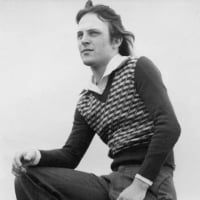Let’s talk about the lack of disabled actors on television.

What’s happened?
Social media this weekend was busy responding to a news article written by the actress, Sally Phillips. In the Telegraph article, 'Cripping up' is just as unacceptable as blackface’, Sally talks about the low numbers of disabled actors on screen. She also describes the casting of non-disabled people for disabled roles as ‘cripping up’ and says:
These comments received a backlash from people who thought Sally was wrong, and that non-disabled people should play disabled character roles. For instance, @PiersMorgan said on Twitter:
What’s the bigger picture?
Looking at the statistics, disabled people are the most under-represented group on TV. The Diamond Report 2020, produced by a collaborative team monitoring diversity on TV, found:
Positively, change is happening albeit slowly and disabled actors are playing more high-profile roles. For instance, Ryan Stocks on Emmerdale is played by James Moore who has cerebral palsy, while Isaac a character on the Netflix show ‘Sex Education’ was played by a wheelchair user. This, and other examples, are only a small indent though and much work remains to be done on achieving equality with non-disabled actors.

How are disabled people shown on screen?
It is also important that where disabled people do appear on screen, their characters don’t portray disabled people inaccurately, or add to stereotypes of impairment being a tragedy, a joke or scary. A good article on this and historic representations of disabled people on screen is Inclusive utopias – old and new visions of disability on screen. This article shows how programme-makers need to learn from the past and portray the everyday reality of living with an impairment to reduce disability stigma.
What do you think?
What is your opinion about how disabled people are shown on screen? Let us know in the comments below!
Comments
-
I think the best actor for the part should get the job frankly.
(i notice that in Call the Midwife there is an actor with Down’s syndrome (Daniel Laurie) for example. That part would be nigh on impossible to be played by someone who wasn’t born with Down’s syndrome surely. )0 -
In my opinion it shouldnt matter if it is a disabled person playing them or not as long as it is realistic and shows the reality of the disability. Also that it isnt just so that the diversity isnt used as a prop for promotion of the programme
But I do agree there is a distinct minority of disabled representation in TV unless it is a programme about disabled, but it has improved over recent years0 -
I think that disabled roles should be given to disabled actors. Disabled people aren't represented enough on tv!0
-
Agree and disagree.
First, please could producers rid themselves of the lazy notion that a token wheelchair is the beginning and end of inclusion?
Second, please could just the general casting be inclusive, such as if they need to cast twenty extras and minor characters, they could lean over backwards to select disabled actors, to correct the imbalance, just as they would if they noticed not a single actor was Bame?
Third, instead of making the disability the 'issue', could they make sure they automatically keep open minds about using disabled actors in all and any parts, again, just as they would re-jig the script if at all possible to include a Bame actor, or to give a specially good woman a part originally intended to be a male character?
Fourth For that purpose, there's no objection to using a non disabled but otherwise ideal actor, who has the knowledge and skill to depict a disabled character. You wouldn't refuse to watch Dame Dench, if she either had an accident and needed to play on crutches or in a wheelchair, or even if she or the director has taken a whim to make things a bit more interesting by tinkering with the usual way the character is shown.
She would have a triumph no matter what, maybe using a visible hearing aid, or showing impaired sight even if a stage hand had to walk at her side because she could no longer see the stage. (I vaguely think she does in real life have reduced vision) I would guarantee that someone of her calibre would be so thorough and painstaking that if she was cast to portray C.P., or Parkinson's, or Alzheimers, or many other conditions, she would get it right. There are only a handful of truly great actors, so for a really major part, you couldn't guarantee casting a genuine Japanese Japanese, or a genuine disabled disabled. It's true, actors act, that's why they are called actors.0 -
Some years ago I was asked to attend a discussion with a young female actress (still cant call a lady an actor sry) who had produced a video with the help of another charity about her inability to get further TV work (even in commercials) since she became disabled with a heart condition. The idea was that we would discuss the video after watching it and a TV crew would record it to put out later. The session took over 3 hours with constant retakes and ended up being shown on an East Anglia news show. Clips from the video were included and it got 4 or 5 minutes air time and I was shown for about 8 seconds total, all from 2 and 3/4 of discussion. When I watched it I felt sorry for the young lady because she had set her heart on getting the message across and it wasn't portrayed as such, more as someone disabled moaning again.
I doubt that the general perspective of most people will ever understand what disability means and how difficult it is to get work once disabled especially in high profile markets such as television.
The young lady was on the fringes of a good career and was also hedging her bets with training to be a nurse when she became very ill and would never walk again.
TK1 -
Great comments everyone. It's interesting to see both sides of the argument supported.
I know @newborn touched on it, but what do you think to the current representation of disabled people on TV? Do you think it tends to portray disabled people negatively? Also, have you seen anything and thought how refreshing it was in showing the realities of disabled life?0 -
Cher I am so happy that you have brought this up. I am a disabled actor and model. I rang an agency in Glasgow. Still waiting for an answer. That was approx 7 months ago. I would love to get back to work. But I'm not allowed. Will xCher_Scope said:What’s happened?
Social media this weekend was busy responding to a news article written by the actress, Sally Phillips. In the Telegraph article, 'Cripping up' is just as unacceptable as blackface’, Sally talks about the low numbers of disabled actors on screen. She also describes the casting of non-disabled people for disabled roles as ‘cripping up’ and says:
“Cripping up is just as unacceptable as blackface. People think a disabled actor isn’t acting if they’re playing a disabled character... but that’s like saying Idris Elba isn't acting when he plays Nelson Mandela. Lack of integration has massive effects. You shouldn’t be stopped from working in TV because you literally can’t get in the building.”These comments received a backlash from people who thought Sally was wrong, and that non-disabled people should play disabled character roles. For instance, @PiersMorgan said on Twitter:
I agree... that talented disabled actors should be given more opportunities, but I don’t agree that only disabled actors should play disabled parts. It’s called ‘acting’ for a reason....What’s the bigger picture?
Looking at the statistics, disabled people are the most under-represented group on TV. The Diamond Report 2020, produced by a collaborative team monitoring diversity on TV, found:
“The overall figure for working age disabled people is 17% while our data shows that disabled people are only making 5.2% of contributions off-screen and 7.8% on-screen,”Positively, change is happening albeit slowly and disabled actors are playing more high-profile roles. For instance, Ryan Stocks on Emmerdale is played by James Moore who has cerebral palsy, while Isaac a character on the Netflix show ‘Sex Education’ was played by a wheelchair user. This, and other examples, are only a small indent though and much work remains to be done on achieving equality with non-disabled actors.

How are disabled people shown on screen?
It is also important that where disabled people do appear on screen, their characters don’t portray disabled people inaccurately, or add to stereotypes of impairment being a tragedy, a joke or scary. A good article on this and historic representations of disabled people on screen is Inclusive utopias – old and new visions of disability on screen. This article shows how programme-makers need to learn from the past and portray the everyday reality of living with an impairment to reduce disability stigma.
What do you think?
Do you agree with Sally that disabled people should be given the disabled characters roles? Or, do you think Piers has a point that disabled characters should be played by anyone, regardless of impairment?
What is your opinion about how disabled people are shown on screen? Let us know in the comments below!1 -
I was recently shortlisted for the new series of game of thrones. I am on a site called famestreet. Join it worth it. Will x1
-
Black lives matter is all over the news today. It's about representation in real life and being shown as such.
I notice lately how producers, advertisers and such are trying to comply by including more and more black people in them and rightly so.
But I still don't see disabled people being represented in the same way. We are just as much in the real world and should be noticed, instead of being 'brushed' under the carpet.
Of course disabled people should get those roles. It seems a no brainer. To me anyway.
1 -
#dragonslayer I totally agree with you. But when I tried to get an agency. That would put me on their books. It's discrimination. I went to drama School day and night. Was in films. Taggart River City. Films Sweet sixteen. Shot at glory theatre panto adverts. As soon as I mention cancer. They won't put me on their books. Wrong. I had to join an online agency famestreet to try and get a job as a presenter. But I think I have no chance if I be realistic. I was also a nurse and social care worker. But I really want to go back part time to TV. Fingers crossed eh aye think positive. Will xx0
-
What bothers me about discrimination is that it's only certain cases that get raised. "Black lives matter" is a case in point. One black person gets killed and the media (and all the rest of the blacks for that matter) go crazy. Where was all this attention when the Serbs and Croats tried to exterminate each other even killing women and children so no more could be born? There are many many cases around the world where discrimination is absolutely rife and no one does anything or says anything, other examples would be how women are treated in Muslim societies or how African girls are treated. There is a great difference between discrimination and tradition especially when traditions are repressive. Even Britain wasn't exempt when they refused women the vote and still refuse to pay women and men at the same rates of pay.
If society doesn't bother with large examples of discrimination why would they bother with a minority issue.
I'm not against this subject but I do think that it's most likely a waste of time making a big issue out of it. It is, after all, a relatively minor issue and only affects a minority.
TK1 -
It's not a big deal. And I'm not just saying that 'cause I couldn't be an actor. (Speech impediment)0
-
I believe all life's matter. No matter colour gender or any human being with s heart. Would help others as we do. But in your quote some true facts. ALL LIFE'S MATTER. Will xTopkitten said:What bothers me about discrimination is that it's only certain cases that get raised. "Black lives matter" is a case in point. One black person gets killed and the media (and all the rest of the blacks for that matter) go crazy. Where was all this attention when the Serbs and Croats tried to exterminate each other even killing women and children so no more could be born? There are many many cases around the world where discrimination is absolutely rife and no one does anything or says anything, other examples would be how women are treated in Muslim societies or how African girls are treated. There is a great difference between discrimination and tradition especially when traditions are repressive. Even Britain wasn't exempt when they refused women the vote and still refuse to pay women and men at the same rates of pay.
If society doesn't bother with large examples of discrimination why would they bother with a minority issue.
I'm not against this subject but I do think that it's most likely a waste of time making a big issue out of it. It is, after all, a relatively minor issue and only affects a minority.
TK0 -
1967/75
Created by Collier Young. With Raymond Burr, Don Galloway, Don Mitchell, Barbara Anderson. Wheelchair-bound detective Robert T. Ironside battles the bad guys on the streets of San Francisco.
This was the first tv hero who acted in a wheelchair I believe. In real life there was nothing wrong with his legs at all. A very engaging series actually and after a while you barley noticed the wheelchair at all.0
Categories
- All Categories
- 15.3K Start here and say hello!
- 7.2K Coffee lounge
- 88 Games den
- 1.7K People power
- 121 Announcements and information
- 24.1K Talk about life
- 5.7K Everyday life
- 406 Current affairs
- 2.4K Families and carers
- 864 Education and skills
- 1.9K Work
- 523 Money and bills
- 3.6K Housing and independent living
- 1K Transport and travel
- 882 Relationships
- 255 Sex and intimacy
- 1.5K Mental health and wellbeing
- 2.4K Talk about your impairment
- 863 Rare, invisible, and undiagnosed conditions
- 922 Neurological impairments and pain
- 2.1K Cerebral Palsy Network
- 1.2K Autism and neurodiversity
- 39.2K Talk about your benefits
- 6K Employment and Support Allowance (ESA)
- 19.5K PIP, DLA, ADP and AA
- 8.1K Universal Credit (UC)
- 5.6K Benefits and income





